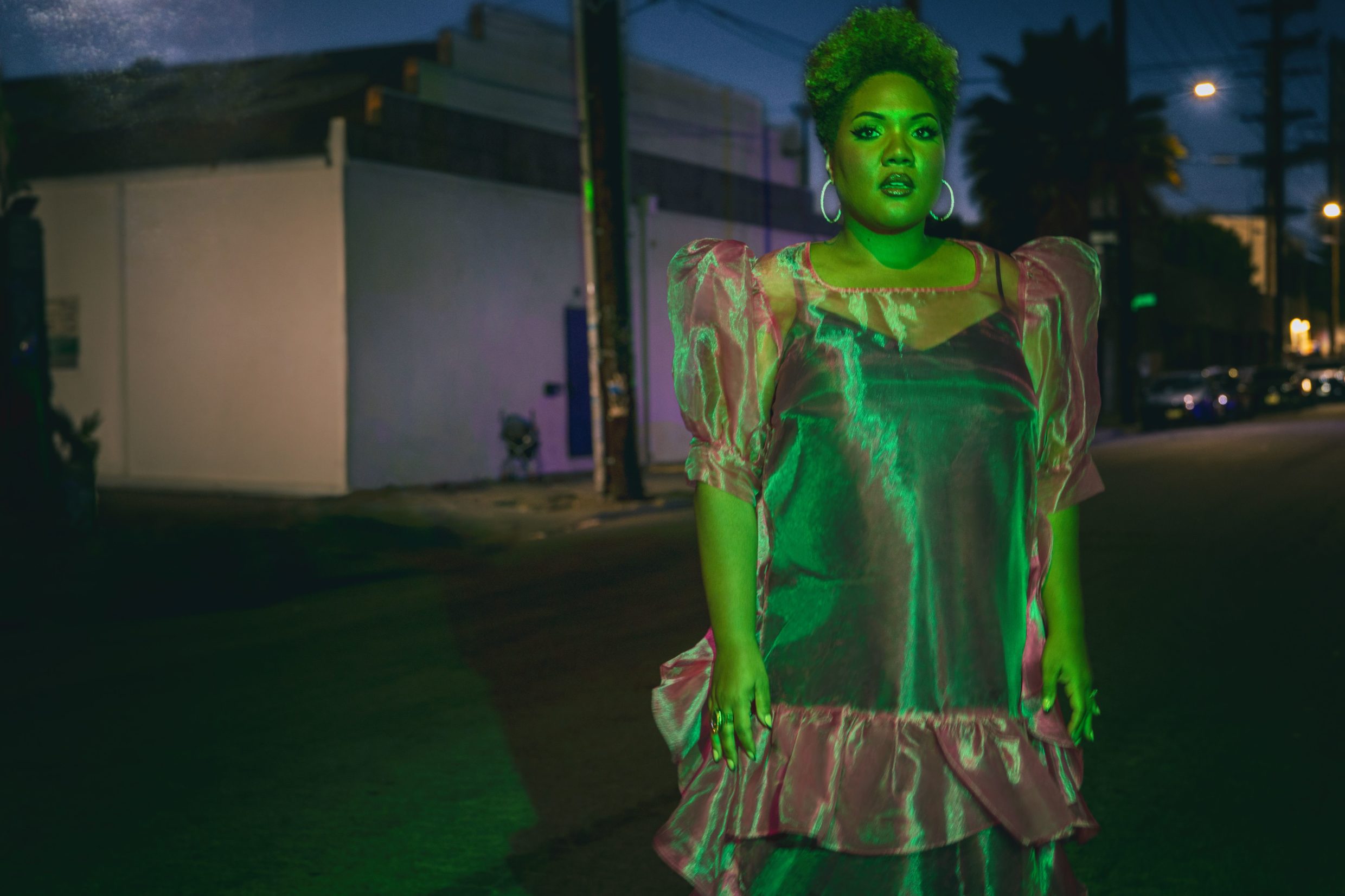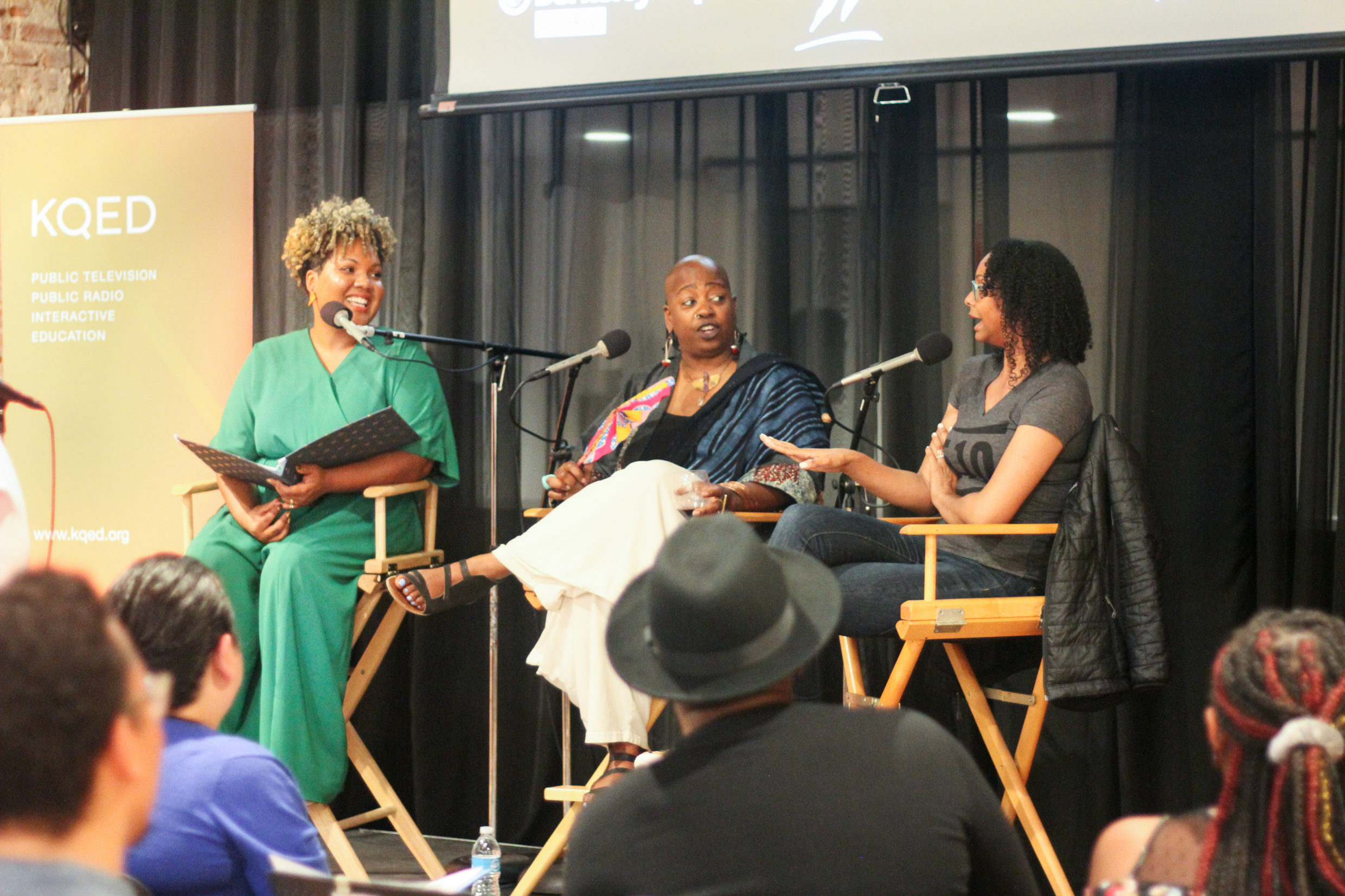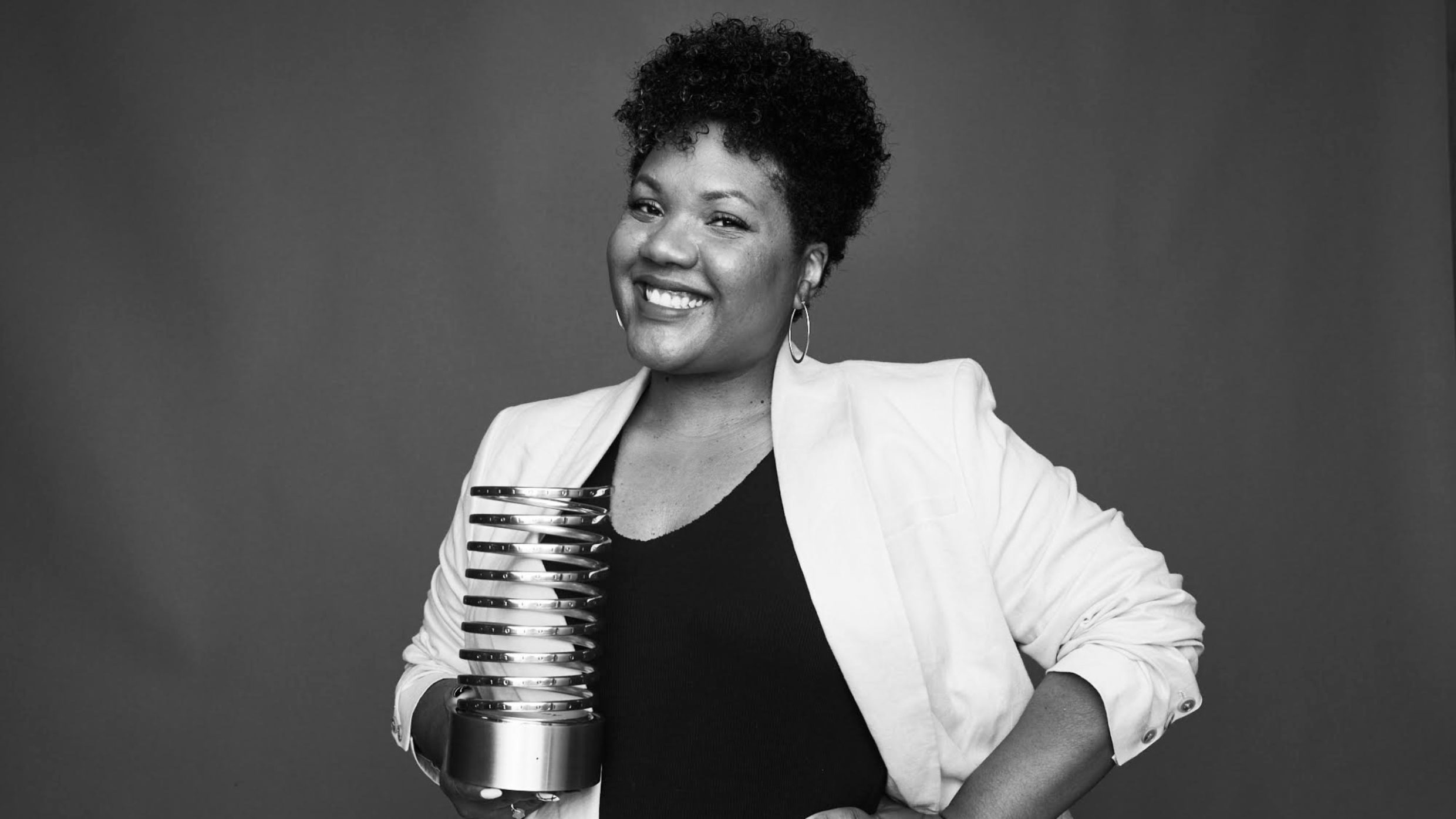When Tonya Mosley began working on Webby-winning podcast Truth Be Told, she wanted to turn advice content on its head. She has done exactly that, and her unique approach to podcasts even earned her the 2022 Webby for Best Host in Podcasts. We spoke with Tonya to find out exactly how she was able to accomplish her goals, and how she successfully built a close-knit digital community.
As a career journalist in the late 90s, telling stories through media was not something Mosley was unfamiliar with. She has had a great deal of experience with letting the stories dictate the format of the story itself, being a television, radio, and print journalist. But podcasting was a medium that had interested her long before she even began working with it.
“Back then the choices were video, audio and print, but throughout the years I’ve yearned for a medium that wasn’t bound by time, breaks or format,” she said. “A place where, unlike the passive nature of TV and radio, the audience is active, and chooses to be there.”
Mosley was craving the close community that sprouts from fostering insightful conversations and narrating intricately detailed stories; podcasting allows the host to speak directly with their listeners, creating an undeniable sense of community. One two-decade career as a journalist later and Mosley took her relationship with her audience to the next level.
She started Truth Be Told in 2019 during her time at NPR as a correspondent for the KQED station in San Francisco. She knew, right off the bat, that she wanted to center the podcast’s narrative on the experiences of Black people.
“Public radio is an amazing space, but historically it has served an overwhelmingly white audience,” Mosley told us. “When a show about Black and brown people is produced for a white audience, there’s often a lot of explaining of cultural norms, and subconsciously guests and myself as a host temper how honest and vulnerable we can be, in part because we don’t know who we’re talking to.”
To help guide the direction of the podcast and to strike the right balance between centering the show on Black experiences and not having to do a lot of cultural translation, Mosley held community gatherings in San Francisco, Oakland, and Silicon Valley to discover the topics her community would like to engage with.
It came out that it was important to Mosley and her community that the podcast uplifted the deeply personal process of embracing liberation as a Black person. And so, Mosley made the concept of liberation the exact subject of the podcast. It shares insights from Mosley’s journey as she redefines liberation for herself–especially as she’s from the generation of Black Americans to have been born immediately after the Civil Rights Movement.
“This framing is important because often people say slavery was so long ago, Jim Crow is in the rearview mirror, but my generation is the first to experience these rights from birth,” she said while speaking on the importance of discussing liberation as it’s a right that was granted very recently.
“My 97-year-old grandmother’s mother was born into slavery; we were raised by people who experienced the brutality of racism and it has impacted us profoundly. We have a lot to unpack and understand about ourselves,” she added.

Photo by Walid Azami
What’s Explored in Truth Be Told
Alongside discussing her own insights, Mosley brings on guests who she’s described as “experts of life” in a continuation of the culture of seeking wisdom and advice from elders. Even though it’s an advice podcast, it’s not prescriptive–it encourages listeners to redefine liberation for themselves and the personal contexts they’re in as it doesn’t have a one-size fits all roadmap.
“ Different perspectives within the diaspora are crucial because people of color are not a monolith, but historically the mainstream media has treated us differently. This is why the internet has become such a strong meeting place specifically for Black Americans–we can dialogue directly with each other.”
Truth Be Told fosters conversations on the wide spectrum of topics that liberation and freedom hold. Each of the four seasons focuses on a specific theme and each theme discussed has been serendipitous in its relevance to current events relating to the Black community–giving listeners the digital support to process how they feel as harmful events continue to happen.
In the episode titled “Healing for Black America,” Mosley discussed what healing while still living in a system that is presently marginalizing Black people can look like–weeks later, George Floyd was murdered by police. In another case, Mosley discussed reproductive rights and their intersection with anti-racism work in the episode “The Womb”–right before Roe v. Wade was overturned.

Truth Be Told Listening Session in Oakland, CA
The Power of Digital Community
Out of all the topics Mosley and her guests have covered on her show, the episode with the founder of the #MeToo Movement, Tarana Burke, left her feeling especially moved.
“We’d scheduled her to talk about overachievement as a trauma response, but the moment we got on the call Tarana shared that she wasn’t doing so well,” she said. “The grief of losing relatives to COVID, her own health challenges and the state of the world had her in a space of feeling deeply emotional… we followed the conversation that Tarana wanted to have, and it was a beautiful one about renewal and using the summer to come back to herself.”
Truth Be Told makes space for exploring feeling and embracing radical joy, embracing the process of renewal and journeying back to the self, as well as depoliticizing the physical body of Black people–all concepts integral to achieving liberation. But these concepts historically haven’t been extended to Black folks in the U.S., as deeply rooted systemic racism has made the Black experience more about survival than experiencing peace.
As Mosley said, “If Miss Manners tells you how to blend in and behave, Truth Be Told explores how you can be you in a world that doesn’t always want you to be your true self. It’s a place where we can laugh, cry, bitch, moan and explore topics that get us close to being whole.”
Mosley knew it was important to create a space where the limits of what it means to be Black can be tested while she was still working as a journalist. She recognized that making that space a digital one by way of podcast holds a particular power in providing an immersive escape for those who need it. The internet has long been the home for those seeking connection but couldn’t quite find it outside their devices, and Mosley is simply carrying that forward.
“I’m on the journey with my listeners to experiencing freedom and liberation on a scale I’ve not experienced before,” she said. “That means challenging conventional wisdom, asking ourselves tough questions, exploring popular ideas and what they mean for us. I want people to walk away feeling full, like after having a delicious full-course meal with great wine and good friends.”
As the show continues to evolve, Mosley is hoping to explore more hard-hitting topics in the coming fifth season, launching in January 2023. She shared with us what its full six-episode narrative is going to examine: what the current resurgence in using drugs to induce healing–referred to as the psychedelic renaissance–means for Black Americans, a community still reeling from the war on drugs.
When Mosley is not working on Truth Be Told, she finds herself reading and listening avidly. Some of her favorite reads range from Vogue to Scientific American and every other magazine in between–on top of her two-books-a-week schedule. As for podcasts, she finds herself hitting play on “Your Own Backyard: The Disappearance of Kristin Smart,” “Radiolab,” and “It’s Been A Minute w/ Brittany Luse.”






